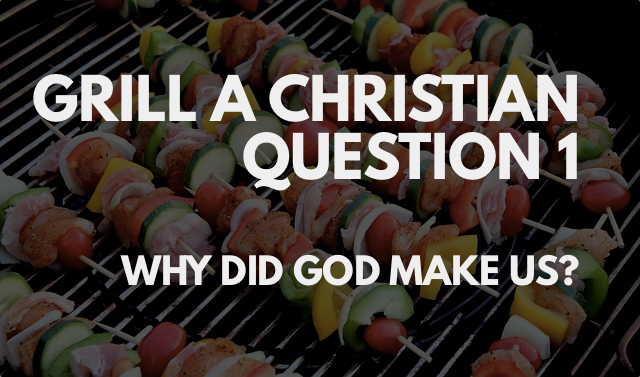Warning // Long post. Even by my standards. I’d suggest skimming it and reading the bits under the titles that you think are interesting
It turns out #lovewins.
If you’re one of my friends, or someone I don’t know, who’s celebrating the changes to the laws in America, and anticipating those changes where you are — I want you to know three things right off the bat, before you set out on reading this post:
- God loves you. He shows that love for you in that Jesus dies for you (and for me) even though we didn’t ask him to, or want him to.
- I think all people everywhere are equally broken and we all experience a world that is equally broken through equal brokenness, whether this is in our sexuality, gender or anything we build our identity on. I hope this stops me sounding judgmental because it certainly removes any platform I might stand on to judge you (or others) from.
- I am hoping that this reflects God’s love for you (and thus, my love for you), and that it isn’t a judgmental, handwringing exercise that makes you feel misunderstood or hated. If you feel either of those things, get in touch. Let me know where I’ve gone wrong. Let’s have a coffee or a beer. I like both.
This post is something like a post-mortem examining where I think Christians got it wrong when we spoke about gay marriage (not all Christians got all these things wrong). It’s a reflection, at times, on what we could have said, should have said, or didn’t say as much as it reflects what I’ve experienced Christians saying, or said myself. Some of it, especially the transgender/intersex stuff towards the end, is new thinking for me. Some isn’t. I’d love to hear other ideas about where things went wrong.
But ultimately, whatever the outcome in the courts and parliaments of this world, I’m not all that worried. Because the hash tag gets it right.
#lovewins.
That’s the good news for Christians who’ve woken up to a sea of rainbows at every turn in the last few days. An iconic and colourful reminder of the victory over the (largely) Christian case for not changing the definition of marriage in the (formerly) Christian west.
The US Supreme Court handed down its judgment this weekend, and I maintain (despite this causing some angst amongst Christian friends previously), that Australia is certain to follow. This isn’t entirely a meek capitulation, I think the fight was lost a long time ago.
Anyway I keep reminding myself #lovewins.
There’s been a lot of handwringing from Christians on the Internet in the fallout to this momentous decision, but I just want to remind my handwringing brothers and sisters, that if you take the Bible seriously, which people against gay marriage typically claim to, then this is how the story of the world ends. #lovewins. It’s already written.
I saw the Holy City, the new Jerusalem, coming down out of heaven from God, prepared as a bride beautifully dressed for her husband. And I heard a loud voice from the throne saying, “Look! God’s dwelling place is now among the people, and he will dwell with them. They will be his people, and God himself will be with them and be their God. ‘He will wipe every tear from their eyes.There will be no more death’ or mourning or crying or pain, for the old order of things has passed away.”
He who was seated on the throne said, “I am making everything new!” Then he said, “Write this down, for these words are trustworthy and true.”
He said to me: “It is done. I am the Alpha and the Omega, the Beginning and the End. To the thirsty I will give water without cost from the spring of the water of life. Those who are victorious will inherit all this, and I will be their God and they will be my children — Revelation 21:2-7
#lovewins because it won at the Cross. Life now would be a whole lot easier if we came to grips with that when coming to grapple with politics and life in general. Incidentally there’s some bad news after those verses for the people in this world who don’t think God is all that important. But I’m writing this primarily for those who claim to believe in the God of the Bible and follow his son.
Stop worrying.
#lovewins.
1. We didn’t treat people the way we’d like to be treated
You might feel like the world is against you. The world might well become against you. You might deserve this. I think we’re in for a big dose of our own medicine here, and that’s what terrifies me. Because we Christians deserve what’s coming. Do you know why people think Christians are anti-gay? Do you know why until very recently in most of these countries that are changing the definition of marriage it was illegal to be gay? These questions are more complicated than the simplistic finger pointing at the church might allow, sure, there are countries that aren’t “Christian” where people are anti-gay, and where homosexuality is still illegal, but in these western countries, the church is caught up in the answer to most of the questions that lead to members of the gay community, and their friends and supporters, having a pretty big axe to grind with Christians.
It wasn’t uncommon for churches in Australia to delight in the way the King James Version rendered statements about homosexual behaviour, and apply it to the people who engaged in such behaviour. Words like abomination. Scratch below most of the arguments mounted against gay marriage and there’s an undercurrent of judgmentalism and disgust that is reserved for the particular sin of homosexuality in a way the Bible never reserves judgmentalism or disgust for one particular sin. All sin disgusts God. Including our judgmentalism.
There’s a world of difference —a vast, chasmic, world of difference — between these three ethical golden rules. The world, in my experience, typically lives by the first. Which is why we’re in trouble. Jesus famously proclaimed the second one at the Sermon on the Mount, and, in reality, displayed the third.
Treat others the way they treat you.
Treat others the way you would have them treat you.
Treat others the way Jesus treated you.
This is how we know what love is: Jesus Christ laid down his life for us. And we ought to lay down our lives for our brothers and sisters. — 1 John 3:16
God is love. Whoever lives in love lives in God, and God in them. This is how love is made complete among us so that we will have confidence on the day of judgment: In this world we are like Jesus. — 1 John 4:16-17
This is where I think we’ve failed, especially in the time where we’ve felt like the big kid at primary school, able to push people around to get the best spots in the playground. Only. We’re not in primary school anymore. We’ve graduated. And we’re the impish kids in the first year of high school, hoping nobody hits us up for our lunch money or gives us a wedgie behind the classroom, or something more sinister.
What would acting out the golden rule, or the example of Jesus have looked like in the marriage equality debate?
I think it would start by imagining a time where Christians were a persecuted minority in our country, where people who didn’t believe the same things we believe about the world were doing all they could to stop us practicing the thing that is at the core of our identity. Perhaps because they believe it to be harmful to us and to others. Especially children. So harmful they wanted to prevent it on behalf of the children, but also for our own benefit. That we might be happy.
Sound familiar.
You know. Perhaps we should have said: “we can totally understand where you’re coming from wanting an intimate, committed relationship, lifelong, relationship with a person you love. That seems like a completely natural thing to want. Personally, we think marriage is something God made to show us something about him, and his love for us as we experience it in the eternal loving relationship we have with God through Jesus, so we want our marriages to reflect the world as he made it, and his promises about the world, but when it comes to your own relationships, call them whatever you choose. We respect your freedom to think that through, we’d simply ask that you offer us the same freedoms.”
Perhaps, when pushed, we might have mentioned that marriage is something that celebrates the coming together of people of two different genders — male and female — and that this coming together is the natural way that children are born, and a marriage offers a stable basis for a family unit. But we’ve pushed this to the front of our reasoning far too often (and I’ll get to this below. I promise).
You know. There’s a bit of Bible oft neglected in this vein.
I wrote to you in my letter not to associate with sexually immoral people — not at all meaning the people of this world who are immoral, or the greedy and swindlers, or idolaters. In that case you would have to leave this world. But now I am writing to you that you must not associate with anyone who claims to be a brother or sister but is sexually immoral or greedy, an idolater or slanderer, a drunkard or swindler. Do not even eat with such people.
What business is it of mine to judge those outside the church? Are you not to judge those inside? God will judge those outside. — 1 Corinthians 5:9-13
I think if we imagined ourselves in this sort of situation we might have hoped that people would be tolerant of our beliefs and acknowledge that somehow at the heart of personhood is the ability to define how we see ourselves and how the world sees us. Somewhere at the heart of personhood is being able to decide the core of one’s identity. What it is we pursue as our heart’s desire. What it is, if you follow David Foster Wallace’s definition, that we worship. The Bible, I think, is pretty clear that this is what personhood involves — we either deliberately seek to carry the image of the living God, or we replace God with other gods or desires. This seems to be the choice that God sets before people from the very beginning of the Bible’s story. And yet we, in our wisdom, want to try to force people to pick God when they want to reject God. At that point, when the Church pushes to legislate against something, no matter how loving we think we’re being to people or their children, we’re robbing people of something fundamental to their personhood.
Is that how we would like to be treated?
Is it how Jesus treats people? At the Cross Jesus shows that #lovewins, but one of the ways he does that is by allowing people to be people. To pick whether or not we want to pursue life lived as God designed it, or life lived as we designed it. Even in the operations of God’s control over every event in history, even in his involvement in the decision of every person who puts their faith in Jesus, this fundamental part of our personhood is protected.
Do you think we’ve offered the gay community, and their supporters, this sort of respect? I don’t think so. I think it’s true that some people have tried to offer ‘equal rights’ in everything except the label people apply to their relationship, but labels matter. And words are flexible. And while we might follow the God who gives all words their true meaning —who spoke the world into being by true words, who speaks through words in order to be understood, and who entered the world as the “word made flesh” in Jesus— we don’t have the monopoly on words and their meanings. Especially not amongst people who have chosen to build their life around things other than this God.
We might think this is a silly choice. We might believe it’s a dangerous choice. We might even want to recommend and alternative choice, especially as we acknowledge that by rights we should be included in the number of people declared not good enough for God. But somewhere caught up in seeing a person, and treating a person, and loving a person, the way God loves people, is giving people responsibility and freedom to make a choice about their identity and personhood, mindful of the consequences — whether those consequences come here and now, or whether they’re the eternal consequences, spoken of in that same bit of Revelation, where #lovewins.
“But the cowardly, the unbelieving, the vile, the murderers, the sexually immoral, those who practice magic arts, the idolaters and all liars—they will be consigned to the fiery lake of burning sulfur. This is the second death.” — Revelation 21:8
By rights, I should be in that number. Many of those words describe my thoughts, and some describe my actions.
That’s why it’s great that #lovewins.
The only reason I’m not in that number is that Jesus is none of those things. This realisation, that when we take up the challenge to treat people the way Jesus treated us, we’re taking up a new sort of identity, a new understanding of what it means to be a person, is meant to shape the way we approach the world. It’s meant to help us see the gap between our picture of reality and morality, and the way others approach morality.
This isn’t an exercise in being all high and mighty and claiming that God is on our side in a moral debate. The most we can claim is that we believe he is. It’s meant to be an exercise in humility.
There. Death. But for the grace of God. Jesus. Go I.
Too often our contributions in this debate have not been humble. We’ve simply spoken as though we’re the prophetic voice of God to our world and people are idiots if they don’t listen. We’ve given them no reason to listen because our words about love have not been backed up with actions of love.
Dear children, let us not love with words or speech but with actions and in truth. — 1 John 3:18
You say you love gay people?
Show them. Not in an abstract way — though even that would be a start if you were doing something about the sorts of horrific rates of suicide and depression amongst young people who identify as homosexual.
Love in a concrete way. Treat them the way Jesus treated you. Stepping in. Taking a bullet for you. Taking your burden upon himself. Being a safe place. Speaking up against those voices that offer condemnation rather than love. While faithfully pointing to the truth about God and judgment. But then offering a path to mercy and forgiveness. To wholeness. To a new identity. A better, more satisfying, place to find your identity than any part of our broken human experience — be it the things we love doing, the people we love, our job, our sexuality, our gender — all these things are broken by those behaviours that lead to judgment. Jesus isn’t. His love isn’t.
Admit you’re broken. Admit your sexuality is broken. Admit you’re both a sinner and judgmental. Admit our hypocrisy. Stop treating gay people and their friends and family like the enemy in some political fight to bring down the world.
#lovewins.
This isn’t how we lost the fight. I’m still getting to that. This is more in the “what to do now” space, inasmuch as it’s in the “what Jesus told people to do and what the Bible tells us to do” space.
2. We lost when we entered the fight expecting to win, rather than seeking to love
Here’s what Jesus told us to do when things don’t go God’s way in a couple of choice bits in the Sermon on the Mount. Here’s the sort of people Jesus called us to be as we follow him. His where we’ve got this fight oh so wrong, simply by fighting, instead of by treating minority groups in our community the way I suspect we’re going to clamour for them to treat us in coming years (and why should they? There have been axes being sharpened on this one for a while now).
“Blessed are the meek,
for they will inherit the earth.
Blessed are those who hunger and thirst for righteousness,
for they will be filled.
Blessed are the merciful,
for they will be shown mercy.
Blessed are the pure in heart,
for they will see God.
Blessed are the peacemakers,
for they will be called children of God.
Blessed are those who are persecuted because of righteousness,
for theirs is the kingdom of heaven.” — Matthew 5:5-10
“You have heard that it was said, ‘Eye for eye, and tooth for tooth.’ But I tell you, do not resist an evil person. If anyone slaps you on the right cheek, turn to them the other cheek also. And if anyone wants to sue you and take your shirt, hand over your coat as well. If anyone forces you to go one mile, go with them two miles. Give to the one who asks you, and do not turn away from the one who wants to borrow from you.
“You have heard that it was said, ‘Love your neighbour and hate your enemy.’ But I tell you, love your enemies and pray for those who persecute you, that you may be children of your Father in heaven. — Matthew 5:38-45
We’ve been, I think, too strident, combative, and bombastic in our defence of marriage, and we’ve made most of our noise about marriage (a created thing) rather than about God and his kingdom.
I can’t tell if our expectation was to win this fight. That’s certainly the language that has been used in this debate by people I’ve spoken to. I can’t see what creates the expectation that we should either win, or fight, when it comes to this sort of thing outside the boundaries of our own lives and identities, and the life and identity of the church. Our job isn’t to fight and win, it’s to follow Jesus who won by losing. Our job is to faithfully be different — to love — even in the face of those who want to fight us. This is how #lovewins
“Blessed are you when people insult you, persecute you and falsely say all kinds of evil against you because of me. Rejoice and be glad, because great is your reward in heaven, for in the same way they persecuted the prophets who were before you.
“You are the salt of the earth. But if the salt loses its saltiness, how can it be made salty again? It is no longer good for anything, except to be thrown out and trampled underfoot.
“You are the light of the world. A town built on a hill cannot be hidden. Neither do people light a lamp and put it under a bowl. Instead they put it on its stand, and it gives light to everyone in the house. In the same way, let your light shine before others, that they may see your good deeds and glorify your Father in heaven. — Matthew 5:11-16
3. We lost when we decided to fight for marriage, rather than speaking about marriage as an analogy for the Gospel
This has already dragged on for a while, and I’ve got a few more. God made people male and female to reflect his nature. God isn’t gendered. But marriage, in the bringing together of two persons in one flesh is a great picture of the Trinity, and the eternal loving relationship at the heart of the universe. Just as loving Trinitarian relationship gave birth to life in Genesis 1, marriage was the means, in the Genesis story, by which Adam and Eve carried on the creating of life. Marriage is about that. But because of the Gospel, marriage is about more than that.
Personhood is also about more than marriage. A person is able to be a fruitful reflection of God’s image without marriage (see Jesus, humanity of, and Paul, bachelor status in any fictional dictionary). In Genesis two people become one flesh. Two halves don’t come together as one complete thing.
Marriage (and sex) is not the ultimate human relationship (or transaction). It’s not a basis for human identity (though it changes your identity). And it can’t possibly be a fundamental human right because it takes two. Two willing parties. You’re not less human if you are unwilling to be married or cannot find someone you are willing to marry.
So many of our arguments for marriage sound like we’re worshipping marriage either as an idol, a god of our own making, or in such terms that somehow we’ve elevated this good thing God made as a thing to reveal his nature and character into this thing that completes us.
In Romans 1, Paul says the world is meant to play this role:
“since the creation of the world God’s invisible qualities — his eternal power and divine nature—have been clearly seen, being understood from what has been made” — Romans 1:20
And the problem with our human nature, when we’re confronted with the amazingly good thing God has made that has hallmarks of divinity stamped all over it, is that we’re so stupid we keep confusing the signature of the divine for the divine. So we get all excited about these created things and worship them instead.
“They exchanged the truth about God for a lie, and worshiped and served created things rather than the Creator” — Romans 1:25
Whoops.
See. I think those supporting gay marriage, and the rhetoric supporting the case for gay marriage does exactly this with marriage. The case for gay marriage seizes on the goodness of marriage (and marriage is good) but applies it to relationships where the God of the Bible has already been tossed out the window. Paul would say this sort of thing is a prime example of what he’s talking about.
But lest we get all finger pointy — the “Christian” case for marriage does exactly the same thing whenever it fails to see marriage as something that reveals God’s eternal power and divine nature.
You know. When we make it all about kids. And society. And wholesome family values. And Biblical morals. And history. And… Anything but God.
And the thing that makes God’s eternal power and divine nature clearest. Love. The love that wins. The love displayed at the Cross. Marriage, ultimately, is a picture of that love — in our marriages, but human marriages also give us a picture of the relationship where we can find meaningful identity and satisfaction (see Revelation 21, above).
For this reason a man will leave his father and mother and be united to his wife, and the two will become one flesh.” This is a profound mystery—but I am talking about Christ and the church. — Ephesians 5:31-32 (the whole chapter builds to this point)
4. We lost when we made marriage about children, rather than about the sex that produces them
A lot of the logic supporting this point is contained above. While according to the Biblical picture of things before and after the Fall, children, ideally, are made in marriage, marriage isn’t just made for the making of children. It’s made for intimate, one flesh, love between people whose bits fit together, and the product of this fitting together is, occasionally, children. I suspect if you tried to count the number of times sexual intercourse occurs between men and women, and put it up against the number of pregnancies in this world, you’d get the sense that there’s a lot more sex in a marriage than there is the production of children. Some of this activity might be specifically attempting to produce a child, but most of it, I would think, is for the purpose of maintaining and growing a loving, intimate, relationship.
Children happen as the result of sex. But we don’t require fertility tests before marriage (and that would be truly, truly, awful if we did). Often our arguments against gay marriage failed on this basis.
The mystery and beauty of marriage is that two somehow become one. Male and female.
While sex is a part of gay relationships, and will be a part of gay marriage, the Biblical picture of marriage revolves around two different kinds of human coming together as one.
“The man said,
“This is now bone of my bones
and flesh of my flesh;
she shall be called ‘woman,’
for she was taken out of man.”
That is why a man leaves his father and mother and is united to his wife, and they become one flesh.” — Genesis 2:23-24
Whatever you make of how to read Genesis, it’s clear this is part of the story that Christians build their picture of marriage from, and while it talks about fathers and mothers, there’s no mention of making babies here, but there is a sense of the bringing together something that God made to be brought together.
It’s worth noting, I think, that sex is a thing created by God, and how we use it either reveals his character or ours. It reveals something about his divine nature, or about our corrupted nature. Its one of those things where how we use it (or don’t use it) shows if we’re following God’s design or our own. This is pretty powerful. But it also means that we often misplace hope for satisfaction in sex, our sexuality, and even marriage, that these things simply can’t deliver on.
People are free to take or leave this story, and this basis for understanding marriage — and increasingly people in our world are choosing to leave it — but when we made it sound like Christians think marriage is important because “children” we shot ourselves in the foot.
Marriage is certainly a great context for having kids, and kids who know their parents are committed to one another through life’s ups and downs certainly have a solid basis for flourishing. But this sort of relationship isn’t a guarantee that a kid will flourish, nor is anything other than marriage a guarantee that a kid will get a lesser deal in life. Focusing on the nuclear, biological family, as though most people experience or desire that, because this is a “human right,” or even as though this picture was particularly Biblical, always struck me as a bit self-defeating too. It felt like we were hitting struggling single parents (and even not struggling single parents) with wild swings designed to knock out the gay marriage argument. What made it even dumber, I think, is that laws surrounding adoption and surrogacy for gay couples are dealt with completely apart from marriage anyway.
This whole line of reasoning confused what marriage is in its essential form, and what marriage is capable of producing and becoming when the debate, in terms of legislation, was simply about what marriage is. I think the fight was lost because those against the change shifted the goalposts rather than adopting a robust defence of the two words that will actually be changed in the definition (at least in the Australian case).
5. We lost when we lost the fight on gender, and didn’t think hard enough about how to include the T or I parts of LGBTQI in the conversation
We live in an age that celebrates mind over matter when it comes to identity. What you think you are and feel you are, therefore you are.
Here’s Miley Cyrus:
“I don’t relate to being boy or girl, and I don’t have to have my partner relate to boy or girl…I don’t relate to what people would say defines a girl or a boy, and I think that’s what I had to understand: Being a girl isn’t what I hate, it’s the box that I get put into.”
It seems everything is fluid. Especially for people who are privileged enough to be able to choose to be fluid, rather than for people who are locked in to a marginalised or complicated facet of the human experience.
It’s not just sexuality that gets confused when humanity turns on God, and that turn is felt in the ‘frustration’ of God’s creation. It’s gender too. And our biological sex. While part of my point here is that maleness and femaleness are, in marriage, different and distinct. That’s not true for all people — and just as the church is grappling with how to care for same sex attracted people who want to be faithful to the God of the Bible, we need to grapple with what it looks like for transgender and intersex people to follow Jesus and carry the image of God.
Before this gets too far down a rabbit hole where this needs to be acknowledged — I’m a guy (gender) in a guy’s body (sex) and I know that there’s an incredible amount of biological complexity out there that means this sort of alignment isn’t always the case. I think we need to be careful not to exclude transgender or intersex people from our definitions of humanity, or from our consideration, in clumsy conversations about marriage. This whole issue is worthy of its own post, and I’m not entirely sure of where to go with that sort of line of thinking yet. I want to be careful, because I think there’s a sense where both sex and gender can occur along a spectrum of maleness-femaleness, and it’s important to distinguish between transgender issues and intersex issues. I’m not going to say much, if anything, about the implications of a T or an I identity for marriage, but I suspect it is tied up with helping find some sort of clarity in terms of gender and sex (and sexuality) identity for those dealing with this complexity and working carefully from there.
What does fascinate me, is the kind of democratisation of the transgender experience through people who simply choose to defy categorisation, or people who want to argue that gender is meaningless both in terms of gender identity, and sexual practice. This basically confines the ‘bits’ associated with one’s sex — the matter — into a very small part of our identity. An unchosen bit of baggage. Mind has triumphed over matter at this point, and I suspect a fuller and richer account of our humanity and a more fulfilling and healthy approach to identity sees mind and matter brought together in harmony, or acknowledged tension rather than simply denial.
This concept of personal, individual, mind-driven, fluidity has pretty massive ramifications for our concepts of personhood, and I think, like any time where we put ourselves in the driver’s seat, rather than God, there are bound to be interesting consequences.
The link between gender and sex is increasingly being torn apart, and the proposed changes to the Marriage Act in Australia simply codify this shift that happened a while back without much fuss, and, I suspect, for well-intended reasons. Other people have been much better at caring for transgender and intersex people in our community than evangelical Christians (I’m sure there are liberal Christians who have put more thought into this than we have). I’m unaware of much, if any, evangelical Christian thinking that seeks to understand, love, and serve the T or I part of the LGBTQI community, I haven’t proactively looked (though I will), but I have been part of many conversations about gay marriage where these issues have not been spoken about. I’ve seen conversations on Facebook where transgender people have been dismissed as abnormal or insignificant, and I can’t imagine that this has won us friends or favour when it comes to hearing us speak about Biblical concepts of gender and how they relate to a broken and fractured world (and our own experience of gender). Which in turn means we can’t really speak to uphold the traditional definition of marriage as being between a man and a woman when we aren’t engaging with the complexity of the human experience beyond such neat categories or within these neat categories.
On the link between mind and matter and identity, there’s actually some notion of fluidity and identity driven by the mind and our hearts (thoughts/passions/feelings) that Christians, can affirm. Our minds and hearts are where the action is at in terms of defining our identity as people. They’re where the Bible suggests that battleground is in terms of us either choosing to follow Jesus as children of God, or take up with idols. We are shaped by our hearts and our minds in a way that we aren’t shaped by our bodies (which simply act out this stuff).
“Are you still so dull?” Jesus asked them. “Don’t you see that whatever enters the mouth goes into the stomach and then out of the body? But the things that come out of a person’s mouth come from the heart, and these defile them. For out of the heart come evil thoughts—murder, adultery, sexual immorality, theft, false testimony, slander. These are what defile a person; but eating with unwashed hands does not defile them.” — Matthew 15:16-20
Do not conform to the pattern of this world, but be transformed by the renewing of your mind. Then you will be able to test and approve what God’s will is—his good, pleasing and perfect will. — Romans 12:2
There are a couple of things I think need to be incorporated in to this part of the discussion — the idea that God is not a male who is adequately reflected by male humans, but that maleness and femaleness operate together and separately to bear the image of God, and the sense that gender increasingly becomes meaningless as we are transformed into the image of Christ, united with Christ, as the bride of Christ. This is the ultimate form of identity for the Christian (this changes the way we approach maleness and femaleness in our human relationships, but it doesn’t do away with those concepts altogether in these relationships in this world).
“So in Christ Jesus you are all children of God through faith, for all of you who were baptized into Christ have clothed yourselves with Christ. There is neither Jew nor Gentile, neither slave nor free, nor is there male and female, for you are all one in Christ Jesus.” — Galatians 3:26-28
6. We lost when we made the argument about the next argument (the slippery slope), rather than lovingly understanding what the people in front of us desired and were asking for
I hate this version of the argument against gay marriage more than any other. Gay marriage will not open the door to people marrying their dogs. The arguments used for gay marriage might be used by polyamorists, but the people asking for gay marriage aren’t asking for polyamory and we’re failing to love them, understand them, and listen to them, if we treat their arguments as though someone else is asking for something else.
7. We lost when we didn’t fight harder for love to mean something other than sexual intimacy or total acceptance (not compassionate tolerance)
The tragedy of the #lovewins idea is that what we’re ending up with isn’t a really robust and beautifully messy picture of love. We’re ending up with fairytale love that can’t really handle any opposition.
What do people mean when they write #lovewins? What are people actually celebrating when they rainbowfy their Facebook profiles?
I haven’t read much beyond the highlights of the judgments handed down in the US, but it seems that they pay lip service to the idea of tolerance for those who disagree and then immediately label such positions as hateful or anti-love.
The Greek language has multiple words for love describing multiple kinds of love. We have one word and it’s context that determines the meaning.
Who wants to stand in the way of love?
Not me. Not anyone I know.
But who says what love is?
What I think people are saying when they say #lovewins is that one particular view of love has triumphed over all the others. And by triumphed over I think we’ll increasingly understand this to mean “totally wiped out of the public sphere” any alternative pictures of love, especially those from the pre-enlightened past.
Most of the stuff we watch and listen to about love basically says love is sexual intimacy with one person, or the thing you offer to your family. There’s erotic love and there’s filial love. There’s a fair bit of erotic love going on in the marriage debate, though it’s more about sexual commitment than simply temporary intimacy. Erotic love is the love that we write songs about and feature in movies. It’s boy meets girl love replaced with person meets person love. But this cheapens and limits our view of love such that we can’t believe in a platonic, non-sexual, relationship if there’s any physical affection displayed. So, for example, I once hugged one of my sisters and someone who didn’t know she was my sister, and knew I was married, thought there was something going on. Isn’t love richer if it means something more than sex, and something more than simply family ties or a commitment secured by contractual agreement?
Love, apparently, also means never telling someone you disagree with their choices. This is the new kind of filial love. Loyalty is built in networks where people offer this sort of love to each other, and this sort of love doesn’t cope well with disagreement or dissent. Even disagreement offered with loving intent. Tolerance now means believing everything is legitimate, rather than believing that people should be free to make choices that are wrong and be loved anyway. Our interactions with each other are cheapened by this vision of love. Isn’t love richer if it doesn’t seek to deny or iron out differences, but transcends those differences?
If the Revelation picture of the future from the start of this post and the end of the Bible, where #lovewins is true, then how do Christians love those around us? I think it’s about respectfully allowing people to make a choice (rather than trying to insist they make a particular choice), but it must also mean making some case for the Christian view of the world, and the Christian view of love, even if that case is unpopular, and is perceived as hateful.
This is where the medicine we’ve got coming to us is really going to hurt. I don’t think we’ve loved others very well. I think they’re about to treat us the way we treated them. I think as we become the minority our perceived pursuit of victory at all costs, rather than us having offered love and respect at our cost, is going to come back to bite us. Hard. And this will be an opportunity for us to show how love wins. This will be an opportunity for us not to fight more battles, but to follow the one who fought the battle for us, and who models what love looks like for us… this is how we might make God known in things he created, and is now recreating by the Spirit.
Dear friends, let us love one another, for love comes from God. Everyone who loves has been born of God and knows God. Whoever does not love does not know God, because God is love. This is how God showed his love among us: He sent his one and only Son into the world that we might live through him. This is love: not that we loved God, but that he loved us and sent his Son as an atoning sacrifice for our sins. Dear friends, since God so loved us, we also ought to love one another. No one has ever seen God; but if we love one another, God lives in us and his love is made complete in us.This is how we know that we live in him and he in us: He has given us of his Spirit. And we have seen and testify that the Father has sent his Son to be the Savior of the world. — 1 John 4:7-14








